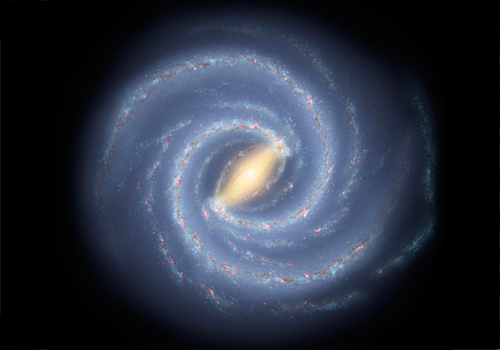Professor Jo Bovy, a galactic astrophysicist in the Faculty of Arts & Science’s David A. Dunlap Department of Astronomy & Astrophysics, has received the distinguished Steacie Prize for 2024 for his research into galactic dynamics, galaxy formation and evolution, dark matter and astrostatistics.
“I am incredibly honored to receive this prize as it is great recognition of my work,” says Bovy, who also holds the Canada Research Chair in Galactic Astrophysics. “As someone working in a field with few immediate practical applications, I personally find it rewarding to see that pure, curiosity-driven research into our cosmic origins and the fundamental nature of matter is appreciated by the wider community.
“As well, at this point in my career, my own success is deeply intertwined with that of the amazing group of U of T undergraduate and graduate students, and postdoctoral fellows with whom I’ve had the pleasure of working. So this is really honoring their fantastic work as well.”
The Steacie Prize is Canada’s most prestigious early career research award. It is given annually in recognition of outstanding scientific work carried out in Canada in the natural sciences or engineering. The prize is named in memory of E.W.R. Steacie, a physical chemist and former president of the National Research Council of Canada.
“I am excited to begin a new year by congratulating Professor Bovy for receiving the distinguished Steacie Prize,” says Melanie Woodin, dean of the faculty. “His research is helping reveal our place in the Milky Way Galaxy and the cosmos. It is thrilling work, richly deserving of this recognition.”

“Professor Bovy is most highly deserving of the 2024 Steacie Prize,” says Lawrence Mysak, chair of the Steacie Prize selection panel and Professor Emeritus from McGill University. “He was selected from among 24 outstanding nominations in all areas of science and engineering. I very much look forward to presenting the award certificate to Dr. Bovy later this year.”
Bovy’s research is helping build our understanding of how galaxies like our own evolved over the 14-billion-year lifetime of the universe — from their birth as fluctuations in the density of matter only fractions of a second after the Big Bang, to the building blocks of the cosmos we see today containing as many as hundreds of billions of stars.
Bovy and his collaborators have mapped the distribution of stars in our galaxy in unprecedented detail, from its central bar-shaped region to the outer reaches of the cloud or halo of stars surrounding the main disk. They have also determined the distribution of dark matter in the our galactic home with high precision, putting strong constraints on the fundamental nature of dark matter.
Bovy conducts this work using data from various large-scale surveys of the galaxy, such as the Sloan Digital Sky Survey, the Gaia mission and the Apache Point Observatory Galactic Evolution Experiment. He and his collaborators analyze this data using sophisticated chemo-dynamical modeling and machine-learning techniques.
According to Bovy, “I think everybody is fascinated by the fact that little smudges of light in the sky that you can barely make out with a small telescope are actually entire galaxies with hundreds of billions of stars located at an unfathomable distance from us and I think using physics to understand the inner workings of these galaxies and how they come into existence is exciting — and it's amazing we can do this!
“Similarly, dark matter is one of the greatest scientific mysteries and the aim is to narrow down the range of possibilities for what dark matter might be — enough to start pinpointing better what it might be and maybe, if we're lucky, seeing a signal that more directly points toward dark matter's nature. In the meantime, these analyses are teaching us a lot about galaxies and we're training modern scientists adept at using machine learning to gain insights from large data sets.”
In addition to his galactic research, Bovy has also written widely-used software tools for research in astrophysics such as the galpy Python package, developed new statistical methods for analyzing large astronomical datasets, and written a widely-used textbook — Dynamics and Astrophysics of Galaxies — that is freely available online.
Bovy adds the Steacie Prize to a growing list of honours that includes the Price Prize (2010), Sloan Research Fellowship (2016), Vera Rubin Early Career Prize (2019), Helen B. Warner Prize (2019) and the Rutherford Memorial Medal (2021).

